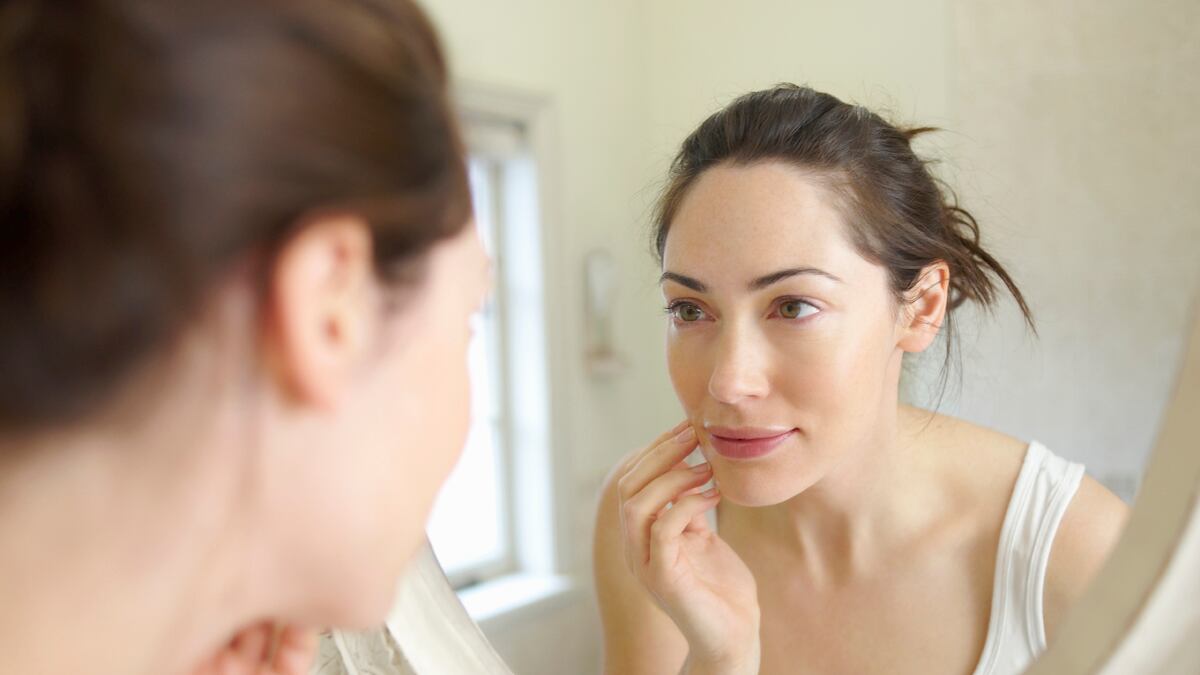Women never seem to escape the world’s fixation on their appearance—often at the expense of anything else, including talent, brains, or performance.
As Ashley Judd pointed out in The Daily Beast, women are relentlessly “described and detailed, our faces and bodies analyzed and picked apart, our worth ascertained and ascribed based on the reduction of personhood to simple physical objectification.”
As anyone in the public eye can attest, that kind of attention is anxiety-producing, even when the verdicts are approving. When they’re harsh, the judgments can be excruciating.
I’ve been on both sides of that equation, and neither was easy. The summer I was 13, I was introduced to female objectification with a bang—literally. My chest had just developed, seemingly overnight, and as I strolled one day down a quiet suburban street, a truck driver startled me with a yell: “Hey, Blondie!” I picked up speed, but he followed, issuing lewd comments about my physical attributes and what he’d like to do to them. Finally—his eyes on me instead of where he was going—he drove into a telephone pole with a horrifying crash. As he erupted in a volley of furious obscenities, I sprinted away as fast as I could, terrified by his rage.
That was only the beginning. For the next quarter of a century, going out in public alone was an endless challenge. Men’s eyes followed me everywhere, as did their comments. Strangers accosted me constantly, sending over unsolicited drinks in restaurants and asking me out without introduction. At one job after another, male colleagues I scarcely knew sent me poetry and short stories they had written about me, even a play about me and my dog—all imputing various characteristics to me based solely on my appearance. People I’d never met introduced themselves at parties and invited me to Paris for the weekend, or to the Caribbean. Men proposed to me on the first date, knowing virtually nothing about me except for the way I looked.
Soon after I became a newspaper reporter, I was named one of the top young talents in the area by the leading magazine in the city where I worked—but it described me as getting the best assignments because I was a “blond bombshell,” while neglecting to mention all the writing and reporting awards I had won (or the fact that the man who wrote the snide remarks had asked me out and I turned him down).
Finally, in my late 30s, I got married and had four pregnancies in quick succession. I had two children, two miscarriages and several operations; I gained weight and got older.
And it was all over. When I walked down the street, nobody bothered me; when I stopped to look at a painting in a museum, no one sidled over to strike up a conversation. For the first time since puberty, I could go anywhere I wanted without being hassled.
To me, becoming invisible in middle age was an enormous relief—but I had no idea that a much nastier phase lay ahead. When I was 57, I published a book about women’s economic empowerment that became a controversial bestseller—and suddenly total strangers were writing about my appearance again.
But this time, they were vicious. Although I had been married for a couple of decades and was the mother of two teenagers at the time, people who didn’t like what I said in my book attributed the results of my reporting to the “fact” that I must be childless, bitter and lonely because I was fat, ugly, and old. Most of those who wrote such things were women.
From then on, the vitriol resurfaced every time I wrote about women’s issues, particularly when they involved sexism, misogyny or any form of discrimination. The stronger the position I took, the more poisonous the attacks on my personal appearance; angry commenters of both genders attributed whatever I thought or said to my not being able to get a man because I was so undesirable.
All of which has led me to the conclusion that if you’re female, you can’t win for losing. When you’re young, nobody pays attention to what you have to say or the work you do because of the way you look—and when you’re old, nobody pays attention to what you have to say or the work you do because of the way you look. Whether you’re perceived as an irresistible babe or a saggy, baggy old hag, it’s all about your appearance.
And the Internet has only intensified the problem. Public figures are subjected to unrelenting scrutiny by the media and popular culture, and even private citizens can suffer an astonishing amount of body-snarking from their peers, because virtually no one is so private as to remain invulnerable in cyberspace.
Moreover, women are often each other’s worst enemies; Ashley Judd noted that many of her tormentors were female. “That women are joining in the ongoing disassembling of my appearance is salient,” Judd wrote. “Patriarchy is not men. Patriarchy is a system in which both women and men participate... This abnormal obsession with women’s faces and bodies has become so normal that we (I include myself at times—I absolutely fall for it still) have internalized patriarchy almost seamlessly. We are unable at times to identify ourselves as our own denigrating abusers, or as abusing other girls and women.”
In recent days, Samantha “don’t-hate-me-because-I’m-beautiful” Brick joined the debate with an article about the advantages and disadvantages of being attractive, which included retaliation from other women. Her piece touched off an international furor, complete with a fusillade of sniping that neatly illustrated her point that good-looking people are trashed for having an unfair advantage even if they admit to it.
Brick said she’s looking forward to aging out of the period when strangers sent her free bottles of champagne, because her looks provoked so much envy from other women. But most women disagree. For women, good looks are power. Social science has only confirmed their assumption, bombarding us with research and polling data showing that beauty gets rewarded with everything from higher pay to the attribution of positive character traits.
No surprise then, that a recent survey of women aged 18-25 found that 41 percent would prefer having large breasts to having high intelligence, and more than a quarter of those who responded said they would trade their IQs for bigger breasts.
A lot of women now act upon such yearnings. Americans spent nearly $10 billion on cosmetic procedures last year, with more than 9 million surgical and non-surgical procedures performed in the United States alone. Breast augmentation led the list of the top five surgical procedures for women, followed by liposuction, tummy tucks, breast lifts, and eyelid surgery. Among non-surgical options, Botox ranked as the most popular.
Even with surgical assistance, beauty can’t be counted upon to protect women from the vicissitudes of aging—particularly the economic ones. A new analysis of Census Department data shows that the majority of American women over 65 are now unable to meet their daily financial needs. When you’re a senior citizen, no one cares how beautiful you used to be—and no matter what you look like, you’re way beyond the stage when it gets you a free pass behind the velvet rope, let alone a free dinner.
Which brings us back to the women who prefer big breasts to intelligence. The cost of breast augmentation varies, but $5,000 is a representative figure. A 30-year-old can spend $5,000 on a boob job—or she can take that $5,000 and invest it.
If she puts only that amount into the markets and receives an average annual return of 7 percent from then on, without ever adding a penny to her savings, she will have $74,582 at age 70, according to financial literacy expert Manisha Thakor, the author of On My Own Two Feet: A Modern Girl’s Guide to Personal Finance, and Get Financially Naked: How to Talk Money with Your Honey. If the 30-year-old starts investing $5,000 a year from that age onward, and receives an average annual return of 7 percent, by the time she’s 70 she will have more than a million dollars.
So maybe the women who think it’s more important to have big boobs than an IQ above room temperature should picture themselves at 70, financially strapped and forced to decide whether they’d rather put food on the table or heat their home when the temperature plummets. If it’s below freezing and your house is cold, a D-cup won’t do you much good.
Because no matter how attractive you are, it’s not going to sustain you over the long haul. My mother died last year at 87, shortly after the New York Times mentioned that women today can expect to live an average of 13 years longer than their mothers did. That puts me at 100 and counting.
Which lends a whole new perspective to the question of how you look and what that means. Women tend to measure the advantages of beauty by considering its short-term benefits, but life is a marathon, not a sprint—and these days, even after they start earning senior-citizen discounts, most women still have a long road ahead of them.






